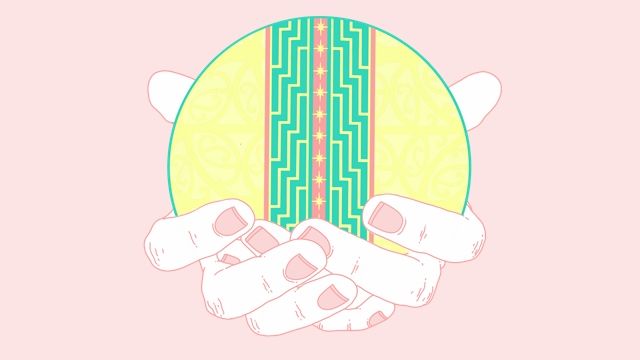In the second of our reo-based episodes, we talk about the challenges that come with learning te reo as a second language.
Scroll down to the bottom of this page to listen to the podcast.
Tōku Reo, Tōku Ohooho
By Kahu Kutia
Kia wawatatia e tātou te pae tawhiti. Kia tuituia e tātou he ao e ū ana ki te manaakitanga, ki te aroha, ki te kotahitanga. Ka mua, ka muri, ki te ao whai oranga. Ko He Kākano Ahau: Wawatatia te kaupapa e whai ake nei.
I te tau 2019 i whakaputaina e te kāwanatanga tā rātou whāinga kia kotahi miriona ngā tāngata reo Māori hei te tau 2040. He wawata nui, ā, he mīharo te whakaaro ki te ao e pērā ana. Te ao e kite ana i te katoa e whakamana i tēnei reo hei reo kōrero, hei waka anō hoki e kawea ana i ngā tikanga tūturu o tātou te Māori.
Heoi anō, te uaua te ara ki tō reo inā he Māori koe e ako ana i tēnei reo hei reo tuarua. I tēnei wāhanga o He Kākano Ahau, ka tūtaki tātou ki tētahi tokorua i ako i te reo Māori ahakoa tā rāua whakatipuranga reo Pākehā noa iho. Ka kōrerotia e mātou ngā piki me ngā heke o te ara ako, me ā rāua wawata mō te whakarauoratanga o te reo Māori me te ao Māori.
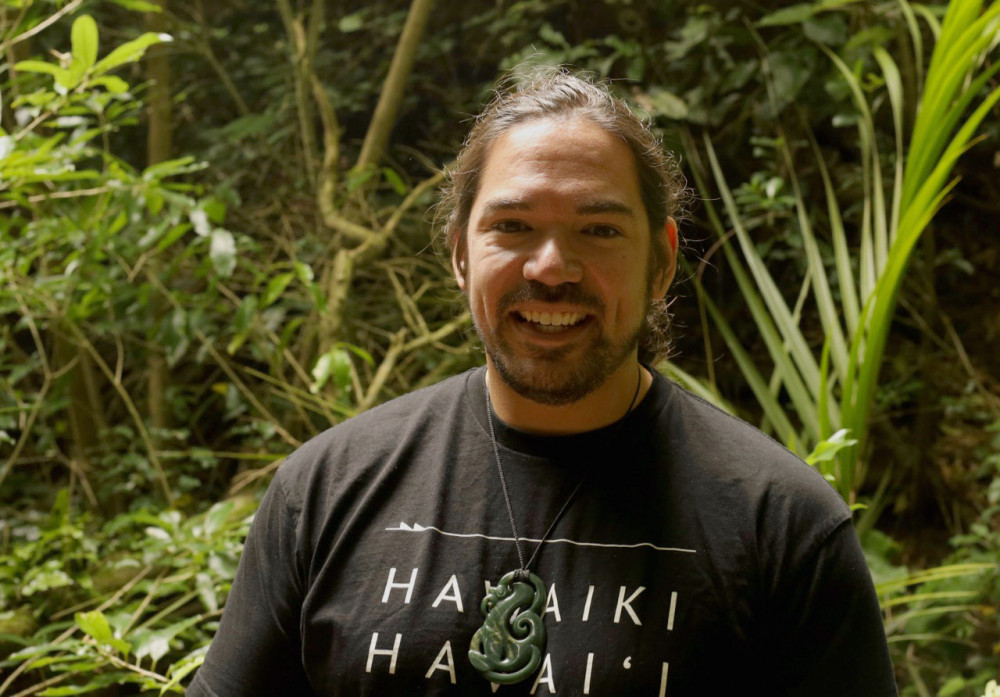
Vincent Olsen-Reeder Photo: UGP / Kirsten Johnstone
He kaiako a Tākuta Vincent Olsen Reeder kei te whare wānanga o Te Herenga Waka. Ko ia tētahi e whakaako ana i ngā tauira e tae atu ki te whare wānanga ki te ako i te reo Māori, Māori mai, tauiwi mai. Waihoki, ko te marae o Te Herenga Waka te marae tuatahi i whakaekea e ia. I taua wā, i whakapono ana a Vini ki te whakaaro, ko ia anake te Māori kaore e taea te kōrero Māori.
"I mua i taku haeretanga mai ki te whare wānanga nei, kāre ōku reo, kāre ōku mōhio ki ngā tikanga Māori. Ka mutu, i taua wā, kāre anō au kia ruku ki te ao Māori."
E hāngai ana tēnei wāhanga o He Kākano Ahau ki ngā āhuatanga o te whakamā, me ngā uauatanga o te ara kia tangata whenua anō ai tō reo Māori. I ētahi wā, kāore e taea te whai pūtea, kāore e taea te whai wā. Anō hoki, ka whakapuaki ngā āhuatanga o te tāmitanga ki a tātou i a tātou e ako ana.
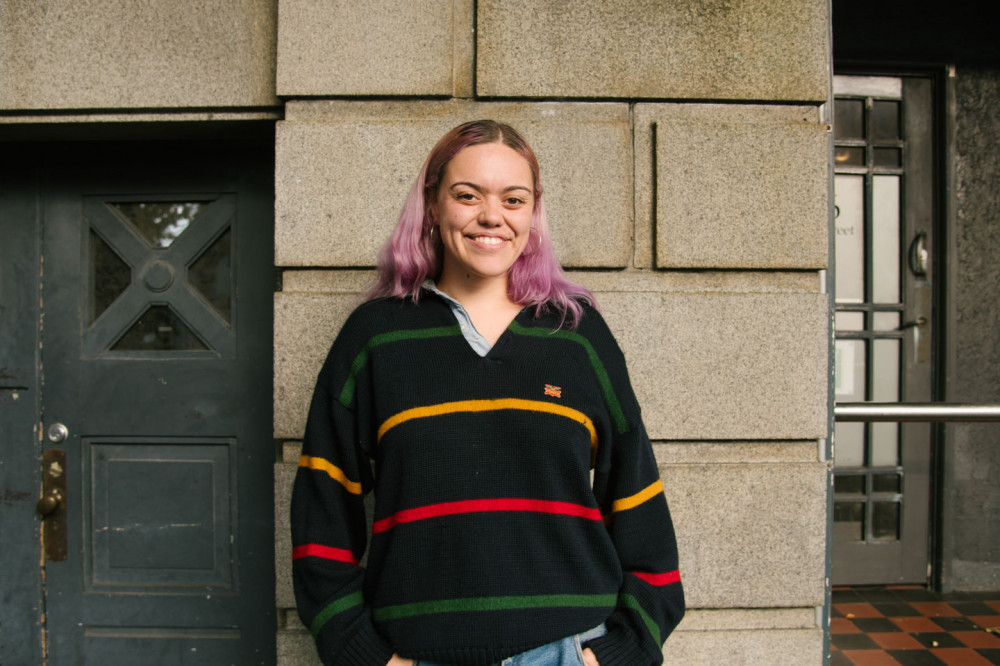
Te Aweawe Ruawai Photo: UGP / Dylan Cook
Ko tēnei tētahi o ngā kaupapa kōrero i te taenga mai o He Kākano Ahau ki Tāmaki Makaurau. I kōrero a Kahu Kutia ki a Te Aweawe Ruawai, he kaimahi hāpai rangatahi kei te pokapū o te taone.
"This is also a big problem for a lot of our tauira, they're very similar to me. They're very dissociated from their haukāinga, they feel whakamā that they don't know their reo, or their tikanga."
Ka huri pērā hoki ngā whakaaro o Vini.
"Kāore au i hiahia hoki atu ki taku marae. Nā runga i te pōhēhē, ko au anake te Māori, kāore i kōrero Māori ana. I whakapono au ki tēnā.
Whai muri i te whakapuakitanga o ngā ture pērā i te Native Schools Act i te tau 1867, i mimiti haere te reo Māori i ngā hapori Māori puta noa i te motu. Kei te ora anō ai te reo nā te mahi o ngā tāngata pērā i a Vini. I tēnei hōtaka, ka wānangahia e mātou te ao kei tua mō te reo Māori. Ka pēhea te ao ki ā tātou tamariki? Ka pēhea tātou e whakarauora anō ai i tō tātou reo rangatira, me ngā wāhi e taea ana e te marea te ako i te reo hei rongoā.
Ka mutu ki ngā kōrero a Vini:
E kī ana te kōrero, kotahi reanga ana, ka ngaro te reo, toru reanga ka hoki mai, nō reira ko taku wawata nui, ka eke ki te whā tipuranga pea, ka reo Māori, kātoa tērā whānau, āku mokopuna. Koirā taku wawata nui.
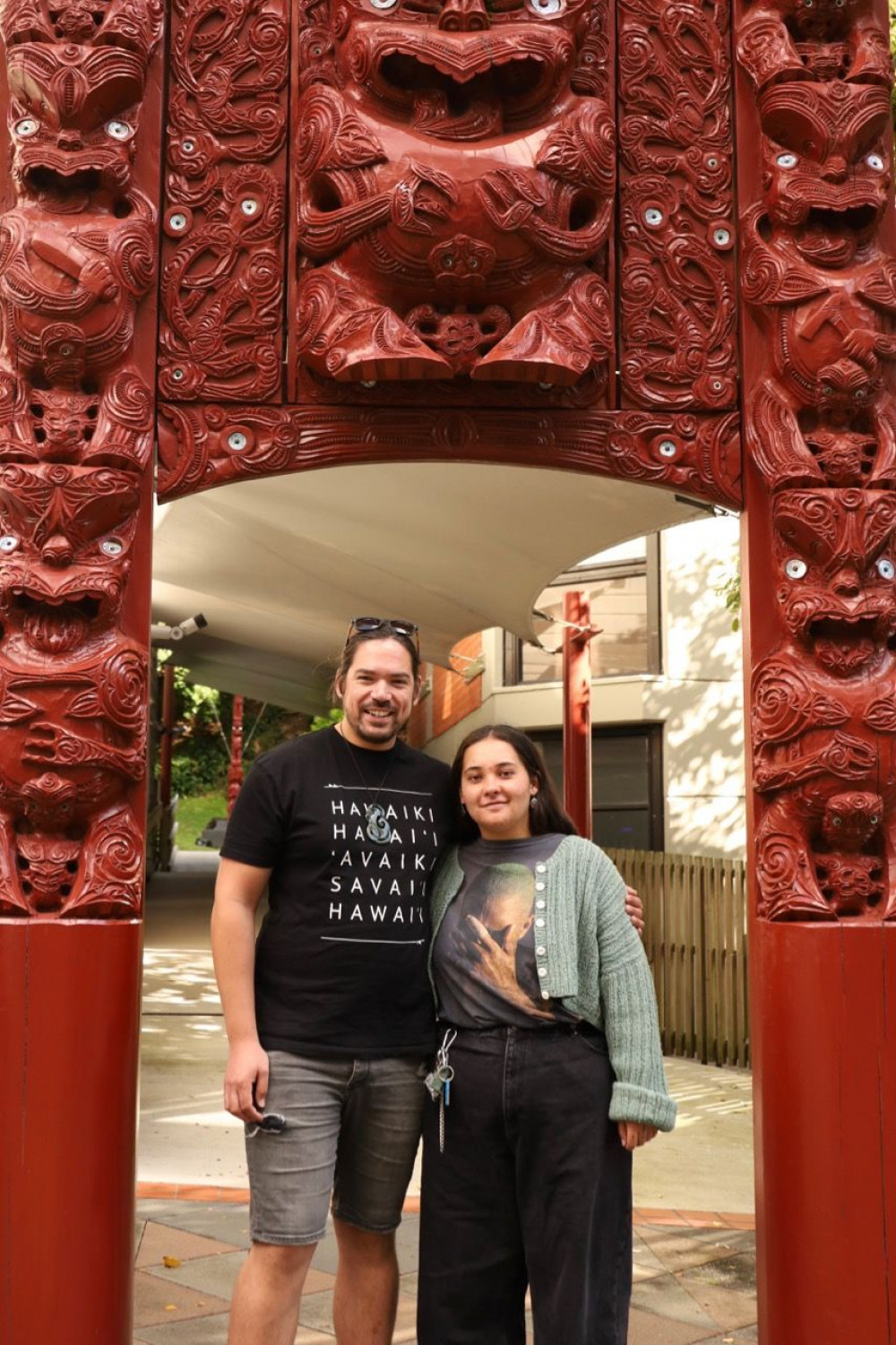
Kahu and her old lecturer Vini at Te Herenga Waka Marae Photo: UGP / Kirsten Johnstone
In 2019, the government pledged to have one million speakers of te reo Māori by 2040.
It's deeply ambitious, and at times almost unfathomable to think of a world where that many people might be speaking te reo Māori, not only in their homes, on our marae, but out and about in the world.
Where te reo Māori might finally be recognised as a language of practical use but also continues to be the waka that allows us to articulate on a deeper level the architecture of the world we inhabit as Māori.
But learning te reo, especially if you're Māori and learning it as your second language is a process with many challenges. In this episode of He Kākano Ahau, we meet two people who are both second-language learners of te reo Māori.
We ask about what some of those challenges are, as well as their ambitions for the future of te reo and te ao Māori.
Dr Vincent Olsen Reeder is a lecturer at Te Herenga Waka - Victoria University of Wellington. He has helped hundreds of students - Māori and tauiwi - to learn te reo Māori. But actually, his first time on a marae was when he arrived at university. At that time, Vini believed that he was the only Māori in the country who didn't speak te reo Māori.
"I mua i taku haeretanga mai ki te whare wānanga nei, kāre ōku reo, kāre ōku mōhio ki ngā tikanga Māori. Ka mutu, i taua wā, kāre anō au kia ruku ki te ao Māori."
This episode talks a lot about the shame and barriers associated with taking back your reo. For those who are Māori, learning te reo Māori comes with the challenge of cost and time, but also a long process of unravelling the intergenerational trauma around colonisation and language loss.
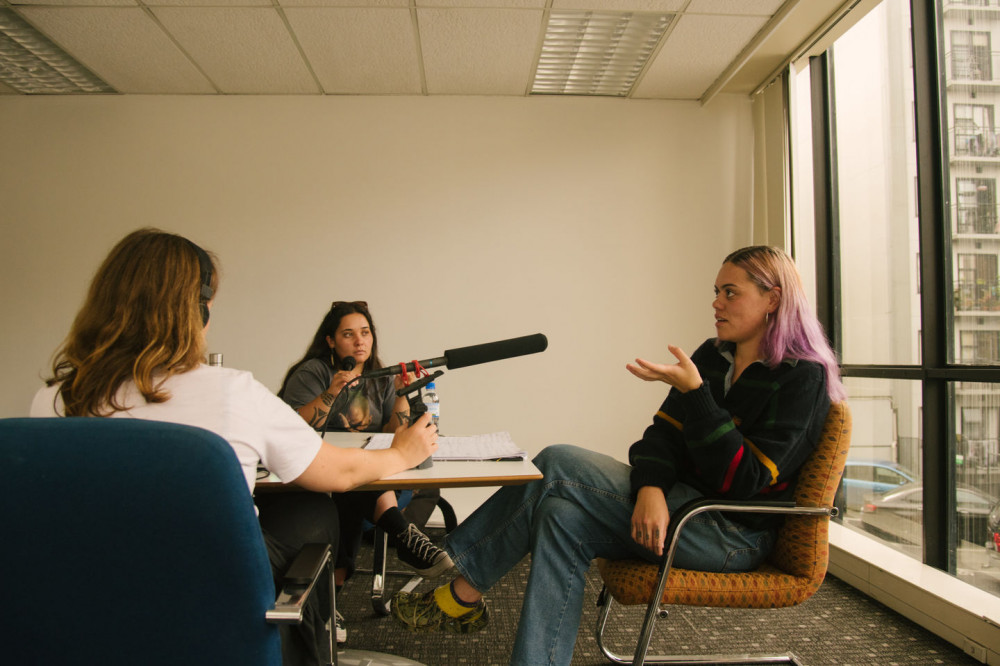
Te Aweawe and Kahu have a chat Photo: UGP / Dylan Cook
This was something we discussed with Te Aweawe Ruawai, a youth working in Tāmaki Makaurau.
"This is also a big problem for a lot of our tauira, they're very similar to me. They're very dissociated from their haukāinga, they feel whakamā that they don't know their reo, or their tikanga."
Vini also reflects on the disconnection that comes with language loss.
"Kāore au i hiahia hoki atu ki taku marae. Nā runga i te pōhēhē, ko au anake te Māori, kāore i kōrero Māori ana. I whakapono au ki tēnā.
In the wake of policies like the 1867 Native Schools Act, te reo Māori was actively taken from many of our people, and thanks to the work of revivalists like Vini, is making a comeback today.
In this episode of He Kākano, we also think about the future of te reo Māori. What do we want the world to look like for our own tamariki? In what ways can we reinvigorate te reo Māori and create safe spaces of healing for those who are reclaiming their birthright - te reo Māori.
As Vini summarises:
"E kī ana te kōrero, kotahi reanga ana, ka ngaro te reo, toru reanga ka hoki mai, nō reira ko taku wawata nui, ka eke ki te whā tipuranga pea, ka reo Māori, kātoa tērā whānau, āku mokopuna. Koirā taku wawata nui."
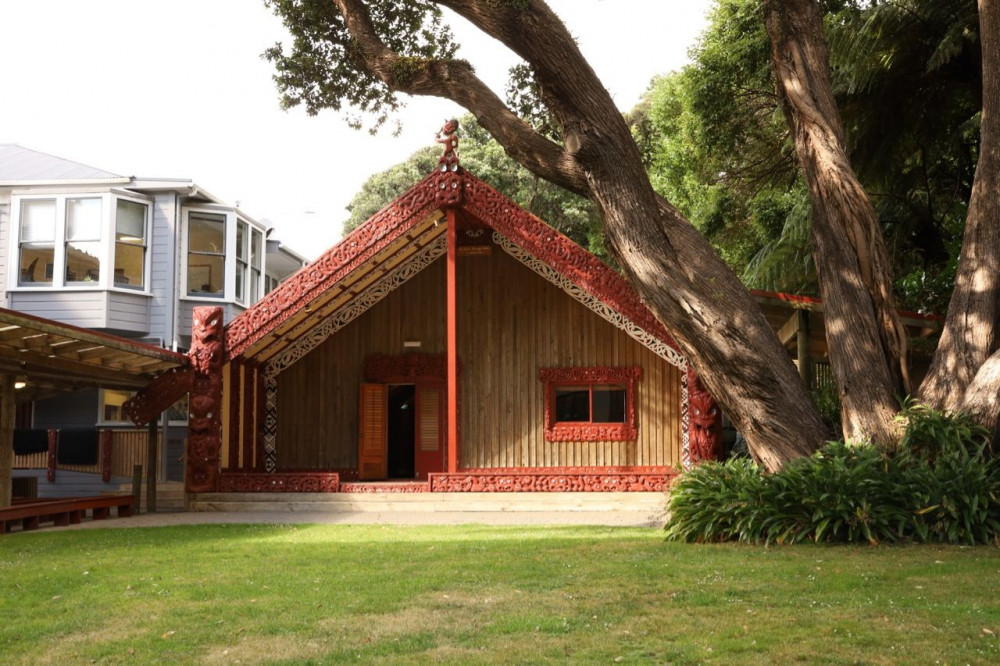
Te Herenga Waka Marae Photo: UGP / Kirsten Johnstone
About He Kākano Ahau:
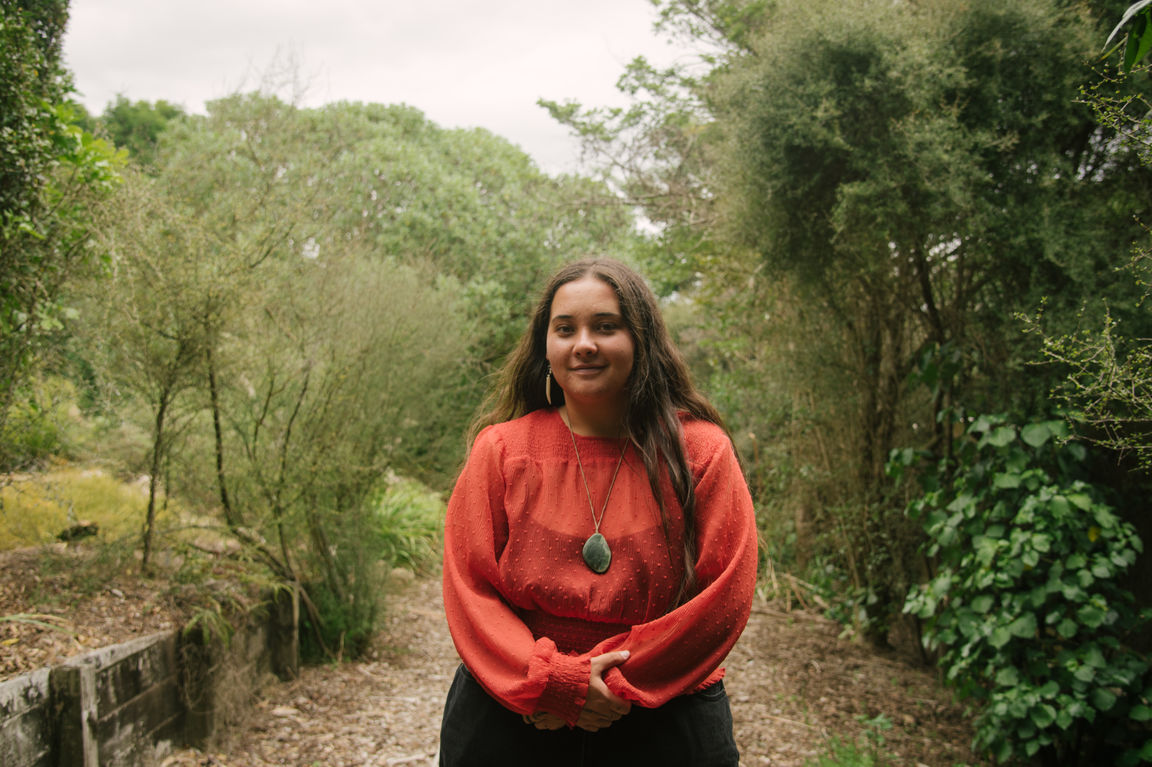
Kahu Kutia Photo: UGP / Dylan Cook
After co-winning Best Episodic/Recurrent Podcast at the 2020 Voyager Media Awards, activist, writer and uri of Ngai Tūhoe, Kahu Kutia returns with season two. She leads a close-knit team across the motu in search of stories woven together by whakapapa and desire to be and exist bigger and better.
This season’s creative team also includes producer and editor, Melody Thomas, of the award-winning sex and sexuality podcast BANG!, journalist, producer and editor Frances Morton continues with He Kākano Ahau alongside producer and award-winning filmmaker Ursula Williams as the podcast’s executive producers. Te Hira Mayall-Nahi (Ngāti Whatua ki Kaipara, Te Rarawa) and Briar Pomana (Ngāti Kahungunu, Ngāti Rakaipaaka), came on board in teina roles to assist with production.

He Kākano Ahau: Wawatatia is a seven-episode series, including two episodes in te reo Māori. Our target audience is young Māori, but we hope the stories make space for everyone to listen in.
